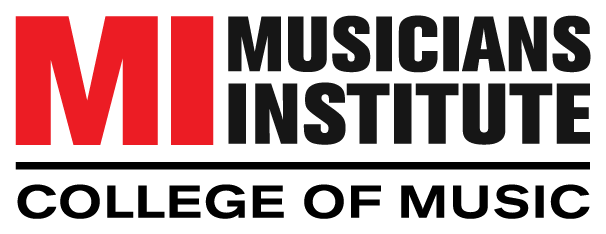How to Become a Session Musician: Steps to Start Your Career
If you’ve ever dreamed of playing on hit records, touring with major artists, or lending your skills to film and TV soundtracks, a career as a session musician might be for you. Session musicians are the behind-the-scenes pros who bring music to life in the studio or on stage — and while the spotlight may not always be on them, their impact is undeniable. Here’s a step-by-step guide on how to become a session musician, plus how Musicians Institute (MI) can help you get there.
1. Master Your Instrument
The foundation of any successful session career is technical mastery. You need to have complete control of your instrument so you can deliver a professional performance quickly and consistently. Session work often requires musicians to learn new material on the spot and adapt to different stylistic demands without hesitation. That means having a strong grasp of rhythm, tone, improvisation, and sight-reading.
💡 How MI Helps: Our programs immerse you in diverse styles, rock, jazz, R&B, pop, Latin, funk, and more, while offering one-on-one lessons to refine your technical precision. You’ll be challenged to expand your range and versatility so you’re prepared for whatever the industry throws at you.
2. Learn to Play for the Song
Unlike soloists or featured performers, session musicians exist to make the music shine. This means you’ll need to set your ego aside and focus on serving the project. Sometimes a producer will want you to play something simple and subtle — other times they’ll ask you to add creative flair. The key is knowing when to step up and when to hold back.

Blog Post
"*" indicates required fields
By submitting this form, I authorize Musicians Institute (MI) to make or allow the placement of calls, emails, and texts to me at the phone number that I have provided, including through the use of automated technology, or a prerecorded or artificial voice. I understand that I am not required to provide my phone number as a condition of purchasing any property, goods, or services. I agree to the terms of MI’s Privacy Policy. MI will not sell or rent your information to third parties, and you may unsubscribe at any time.
💡 How MI Helps: In our Live Performance Workshops and recording classes, you’ll collaborate with other musicians in realistic scenarios. These sessions teach you how to lock in with a rhythm section, take direction from a bandleader or producer, and elevate a song without overplaying.
3. Build a Professional Mindset
There are plenty of talented session musicians in the music industry, so how do you get booked? Talent alone won’t land you repeat gigs, but professionalism will. The best session musicians are punctual, prepared, pleasant and easy to work with. Being respectful, adaptable, and quick to learn can set you apart in a crowded field. Word travels fast in the music industry, and one bad reputation can be hard to shake.
💡 How MI Helps: Our Artist & Career Services team prepares students for the professional world with workshops on studio etiquette, time management, and industry expectations. You’ll learn not just how to play, but how to work as a musician.
4. Expand Your Musical Toolbox
The broader your skill set, the more opportunities will come your way. Many session musicians double on multiple instruments, sing backup vocals, or add programming and arranging to their services. Familiarity with music production software like Pro Tools, Logic Pro, and Ableton Live can also make you more valuable in studio sessions.
💡 How MI Helps: MI integrates DAW training, arranging, ear training, and music theory alongside performance skills. By graduation, you’ll have both the technical and digital skills to thrive in today’s hybrid studio environments.
5. Network, Network, Network
Session gigs rarely come from job postings. A majority of the best session gigs you will get come from the relationships you build. Producers, engineers, and other musicians need to trust that you can deliver under pressure, which is why referrals matter so much. Building your network isn’t just about meeting people; it’s about showing up, staying consistent, and proving you’re dependable.
💡 How MI Helps: From day one, MI connects you to a community of musicians, instructors, and industry guests who are actively working in the business. Open mics, industry showcases, and MI’s own booking services help you meet collaborators and potential employers in real-world settings.
6. Get Real-World Experience Early
The only way to become confident in session work is to actually do it. Whether you’re laying down tracks for a classmate’s demo, playing weddings on the weekend, or performing at a local venue, every experience helps you sharpen your skills and build your portfolio. The earlier you start, the more comfortable you’ll be when bigger opportunities come your way.
💡 How MI Helps: Our students regularly perform at top venues across Los Angeles, from Universal CityWalk to the legendary Troubadour. These opportunities, combined with the variety of in-class projects and collaborations, mean you’ll graduate with not just theory, but experience and credits that showcase your abilities.
Becoming a session musician is a journey that combines technical excellence, professional discipline, and strong connections. With the right training and support, you can build a sustainable career doing what you love. At Musicians Institute, we provide the skills, tools, and industry access to help you step into the session world with confidence.

